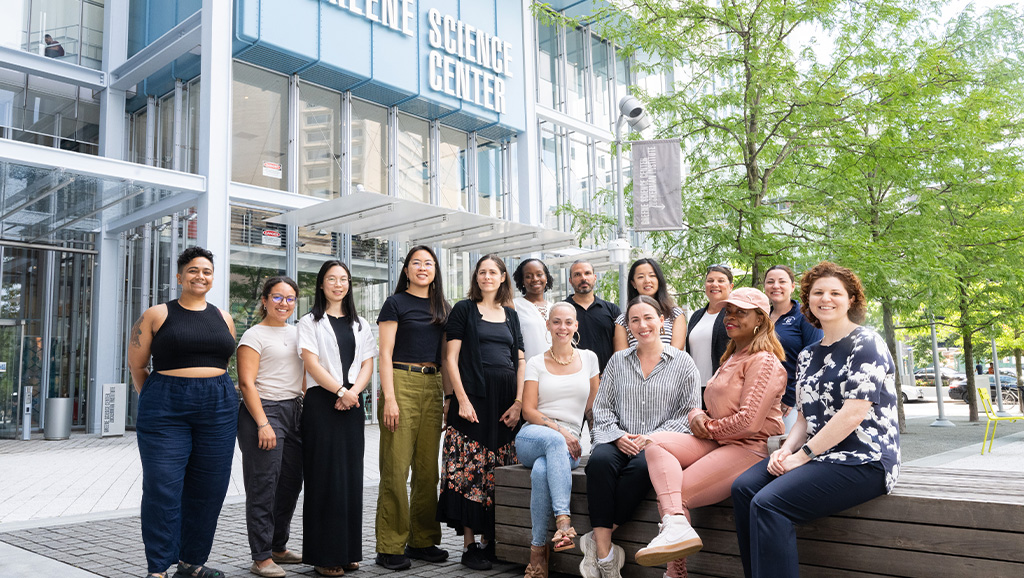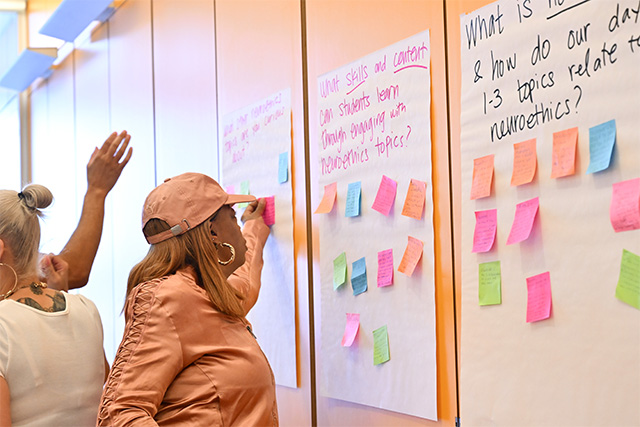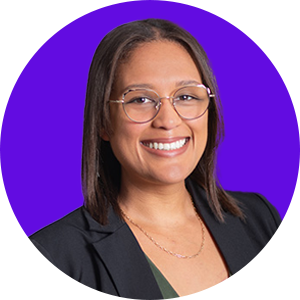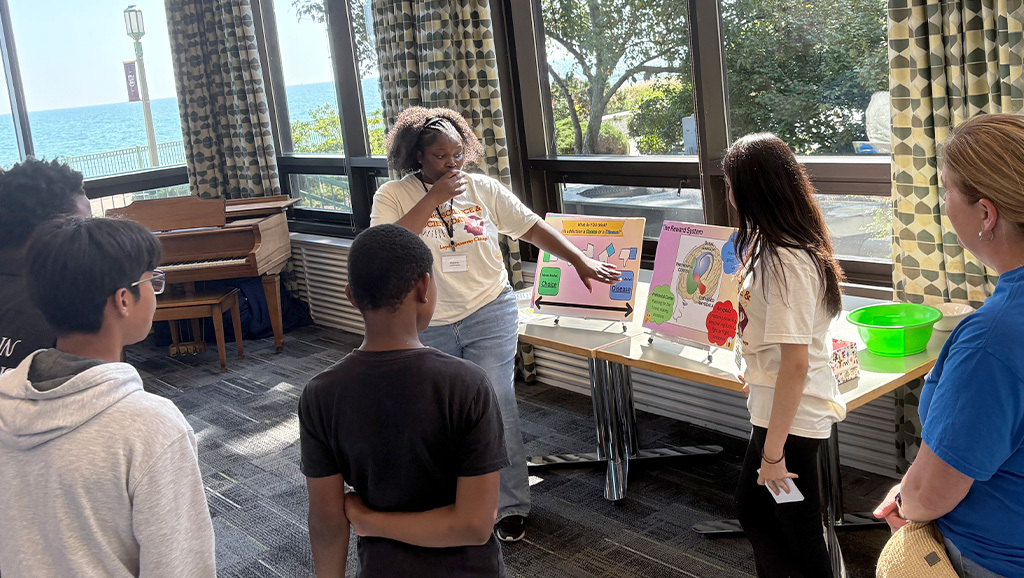News & Insights
Bringing Neuroscience to the Middle School Classroom

Group photo of teachers and program staff. Photo by Diane Bondareff (Columbia’s Zuckerman Institute)
Every summer, science educators flock to professional development workshops to learn new skills and develop resources for the upcoming school year. Often, however, many of these workshop opportunities engage teachers with foundational knowledge in basic sciences without exploring the social, legal, and ethical implications of that science. To help meet this need, the Dana Foundation is supporting the first year of the Neuroethics Teacher Institute for middle school educators at Columbia University’s Mortimer B. Zuckerman Mind Brain Behavior Institute. This pilot workshop series conducted its first week of programming in July.
To expand science curiosity and knowledge in teachers, the Neuroethics Teacher Institute provided a comprehensive week of professional development for eleven middle school teachers from schools in Upper Manhattan and the Bronx. The goal of the program was to answer the overarching question: How do we support students in thinking critically about how science impacts society?
Each day of the four-day workshop was designed to equip participants with tools, resources, and evidence-based lessons to facilitate discussions with their students on current events and challenging topics at the intersection of neuroscience, ethics, and society. Questions to prompt these discussions included:
- How do sensation and perception differ across the spectrum of neurodiversity?
- How does learning and memory work in young adolescents compared to adults?
- How do screens impact cognitive, social, or emotional processes?
- What is generative AI and how does it relate to how learning works in the human brain?
Using a “train the trainer” framework, the program facilitators engaged teachers using the same interactive learning experiences they will practice with their students—promoting critical thinking, engagement with ethical considerations, and the application of neuroscience principles in real-world contexts. Each day of the workshop had a different theme: the role of generative AI in schools; neurodiversity and classroom design; and screen time and social media on the brain. The goal was to engage educators around different topics and assist in developing knowledge and skills that foster a deeper exploration of neuroscience, ethics, and science for young learners. Daily expert panels with psychologists, neuroscientists, and industry partners fostered enriching discussions and collaborative brainstorming to inspire teachers to develop engaging lesson plans for students and devise events to capture interest in neuroscience for parents and the local community. This deep dive into neuroethics resulted in four days of teacher-developed cumulative projects that incorporated neuroscience into the diverse needs and lived experiences of their students.


Each teacher developed custom lesson plans for their students inspired by the content and methods explored, and they shared resources among one another for best practices to encourage students to develop their own “science identity.”
Columbia University plans to host a second Neuroethics Institute in early 2025. This professional development opportunity is open to all classroom educational staff in the New York City area including all teachers, teaching assistants, and paraprofessionals who work directly with middle school students. Applications are open for the next cohort of teachers and are due November 1.
Educators interested in adopting neuroscience into their classrooms are encouraged to explore the intersections of neuroscience and society through the Foundation’s freely available resource library, featuring tools for teaching, professional development, and public engagement.



